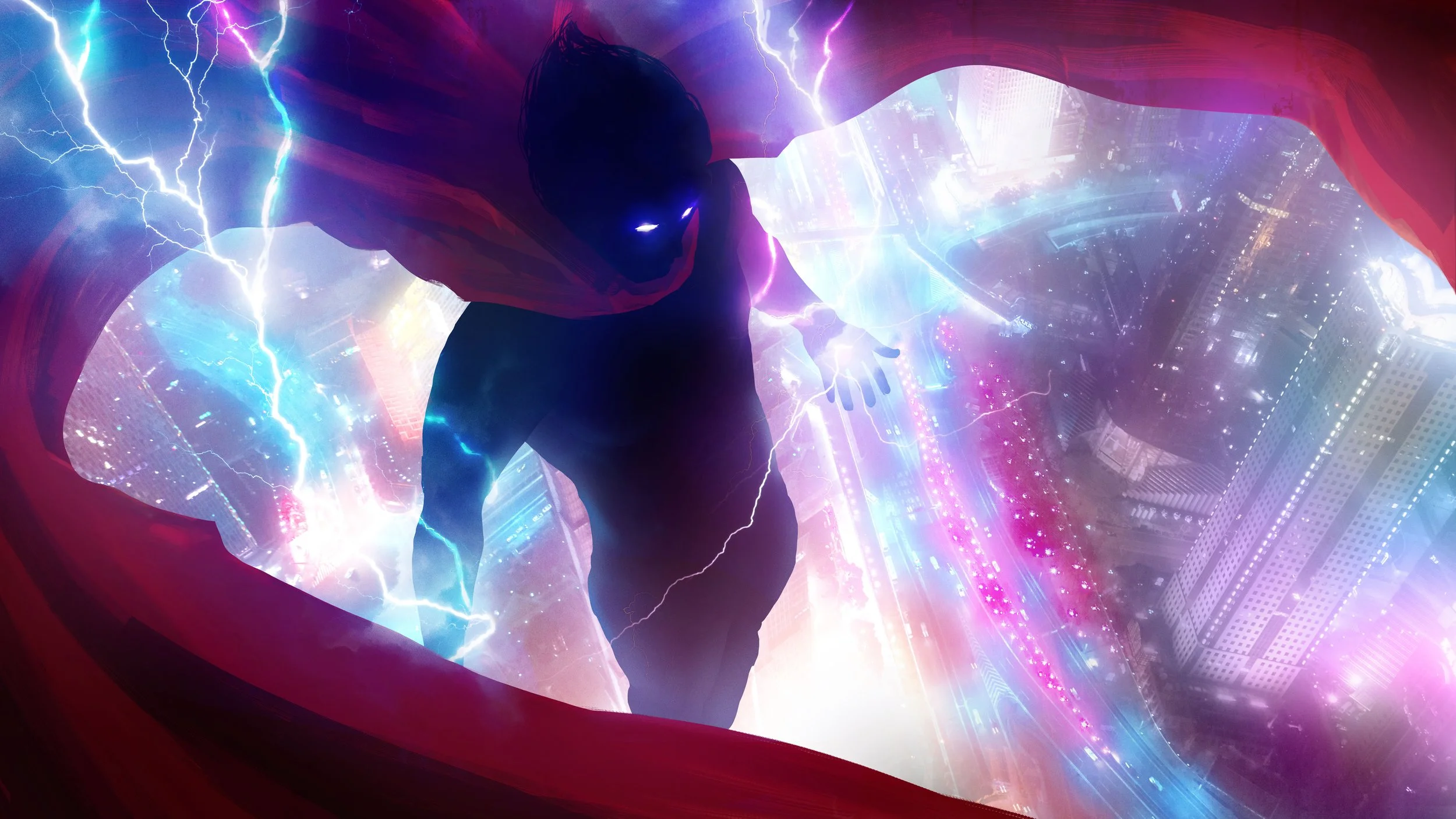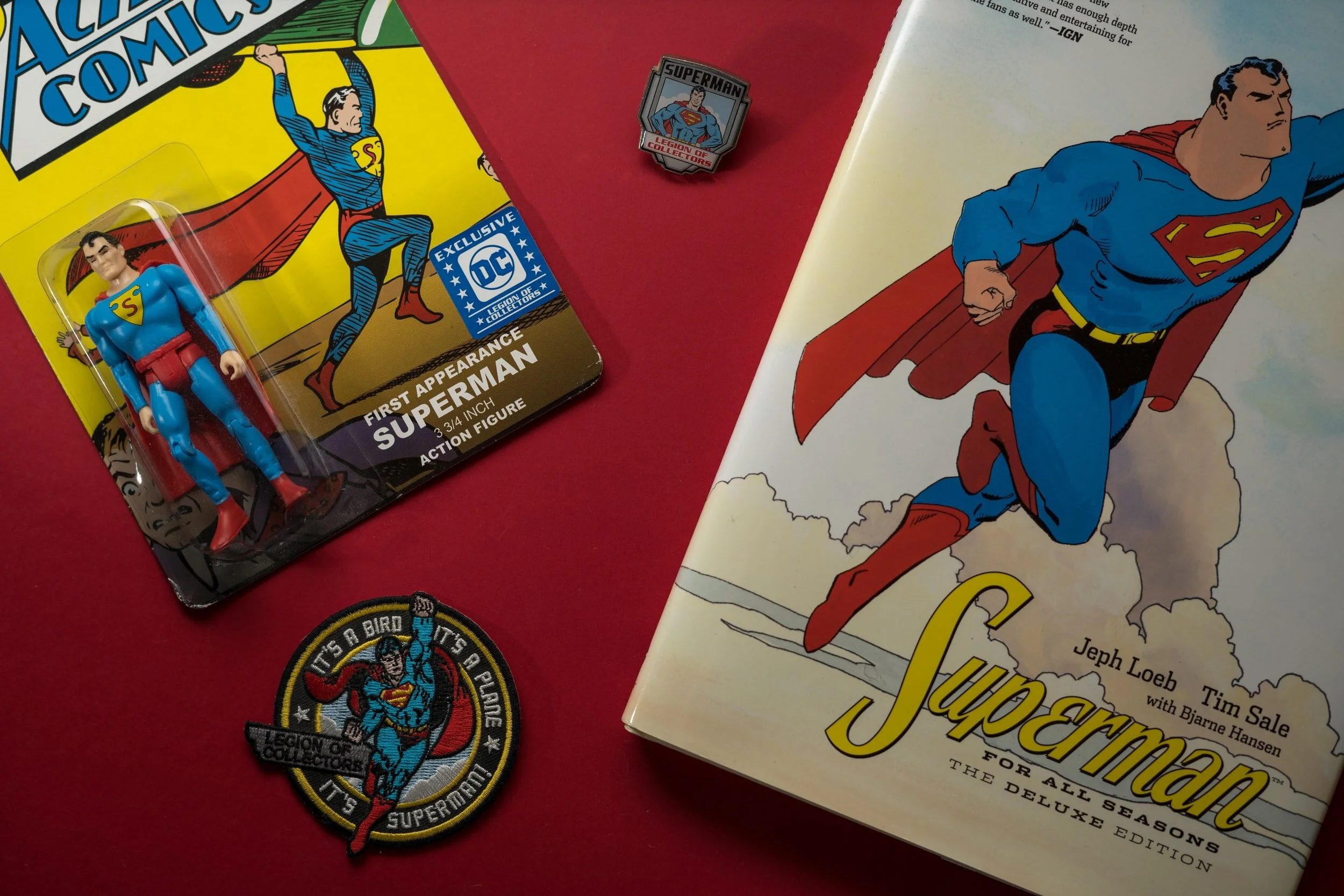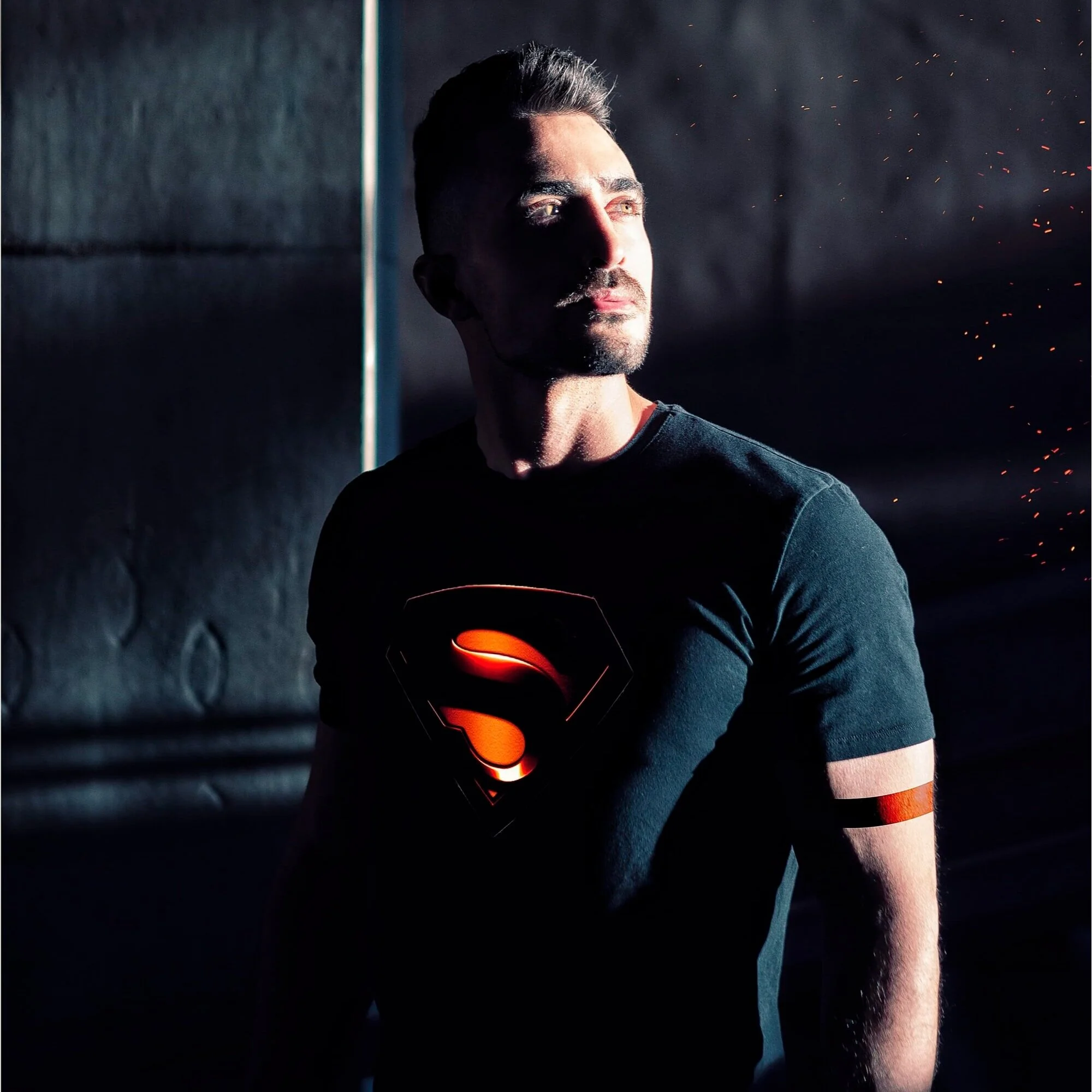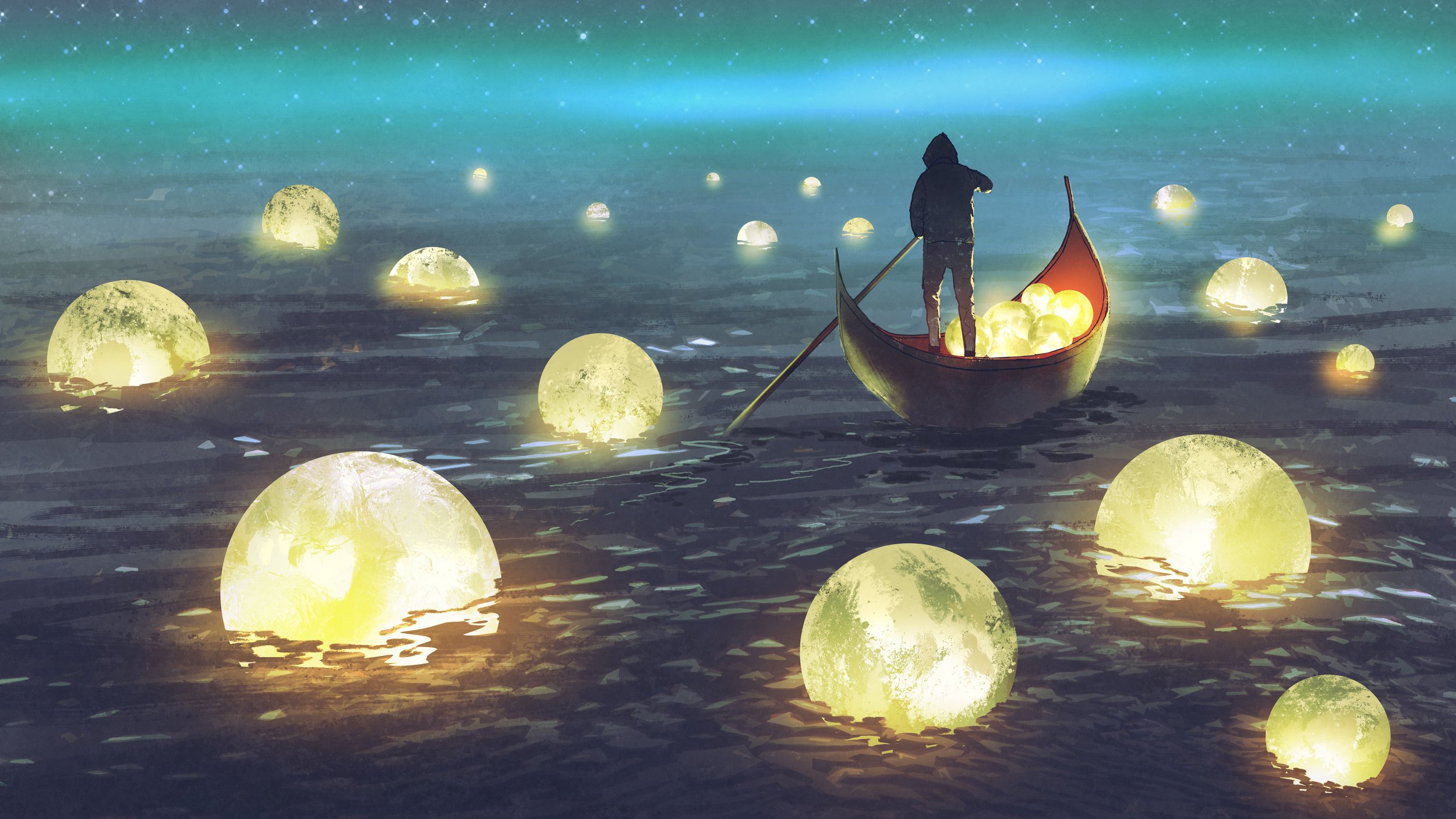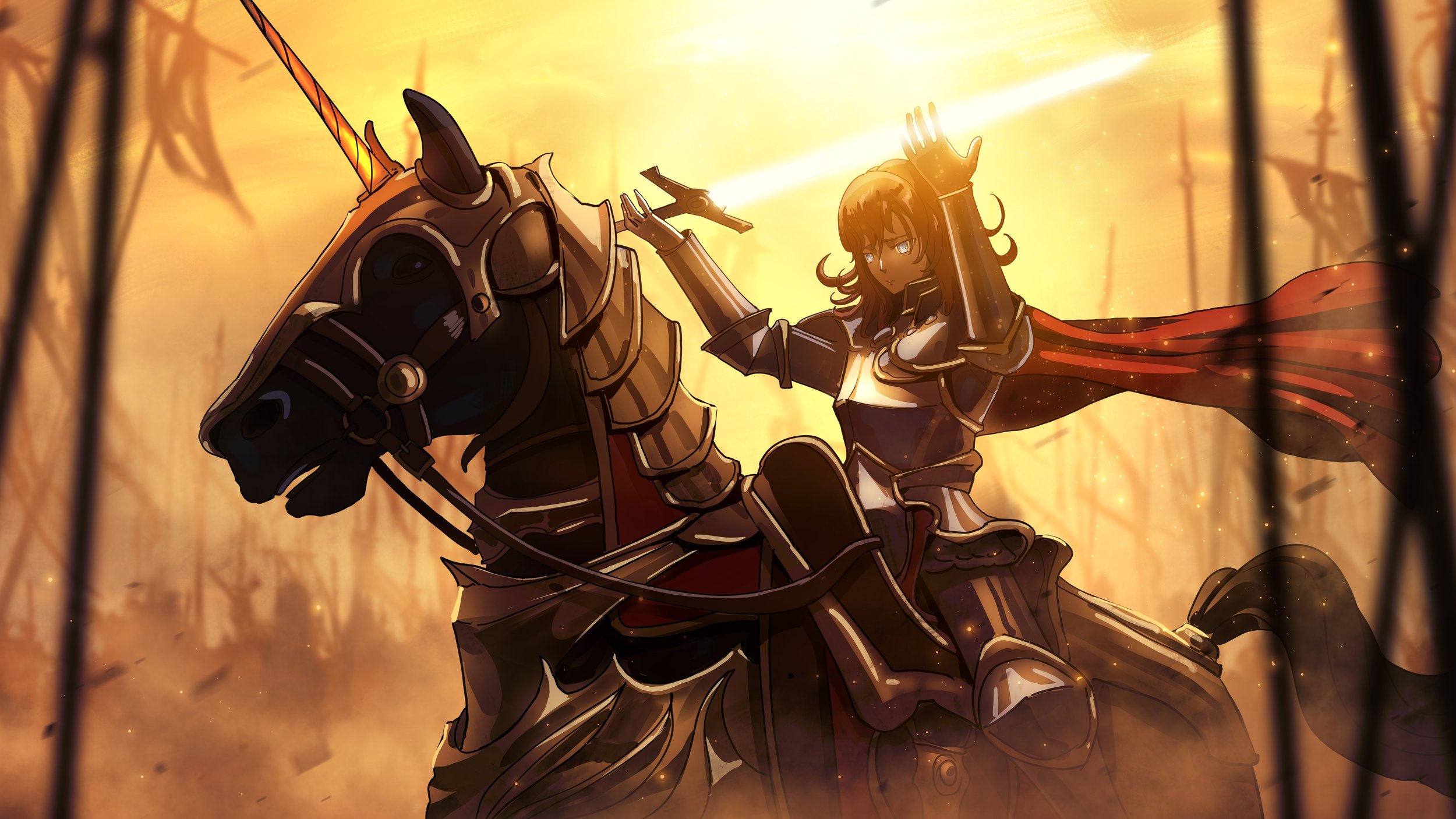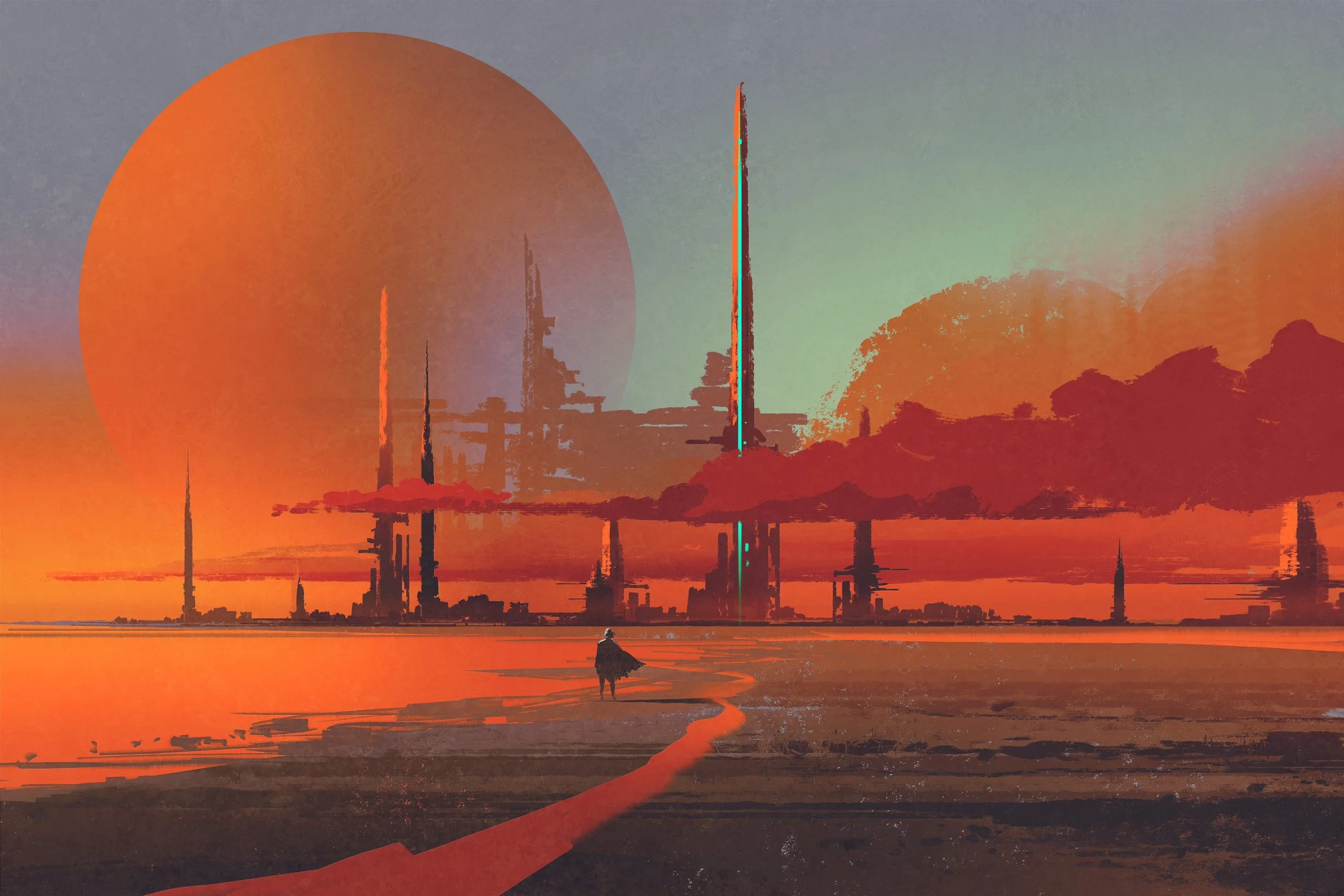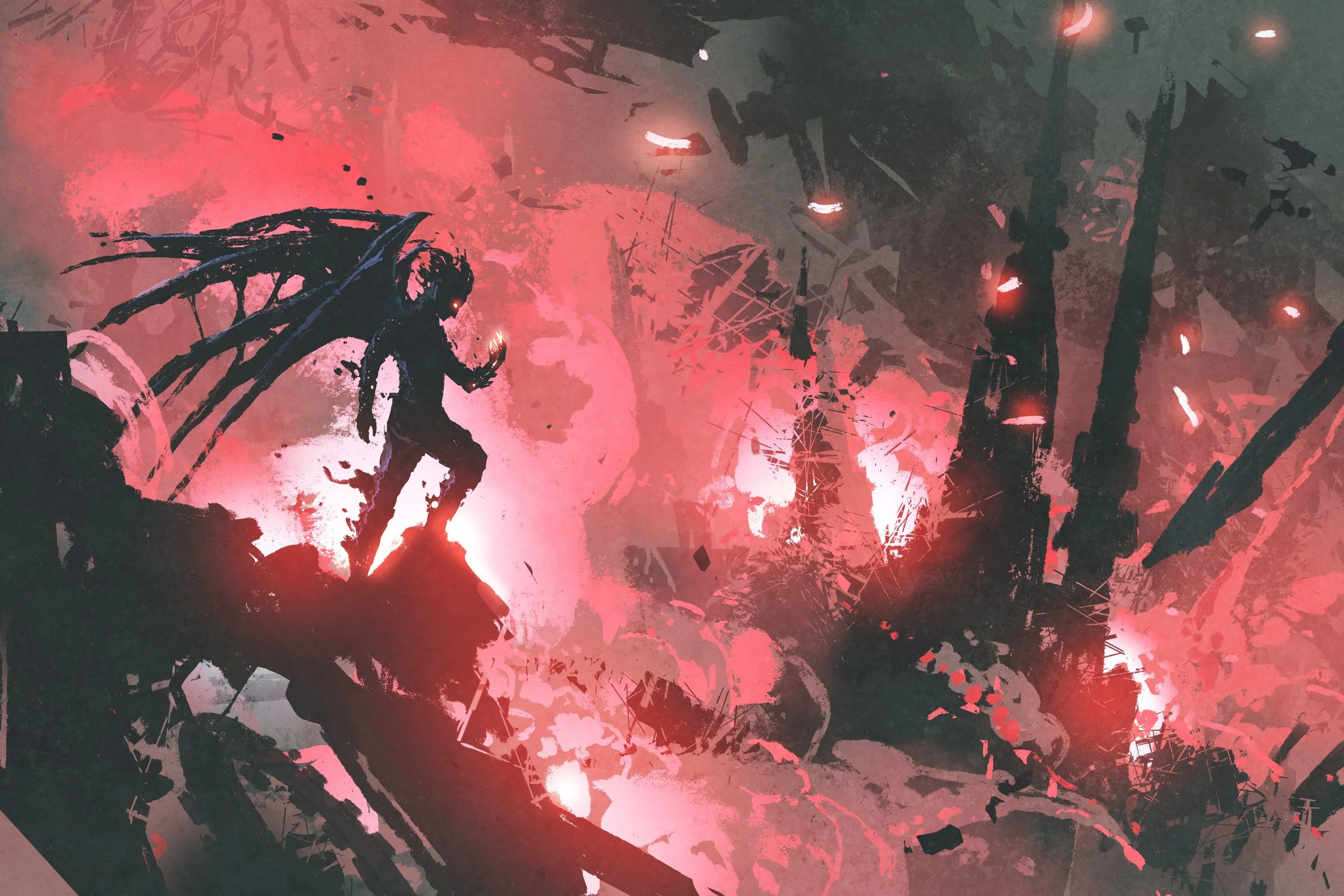The Divinity and Humanity of Superman, Captain America, and Ourselves
How can we reflect on the meaning of our humanity and divinity in the heroic figures of Superman and Captain America?
This article includes affiliate links. If you purchase through an affiliate link, I earn a small amount from qualifying purchases.
Superman is, without a doubt, one of the most important and influential fictional characters of the 20th century. Created in 1938 by Jerry Siegel and Joe Shuster, Superman ushered in the age of superhero comics; to this day, he’s considered by many to be the greatest hero ever created. He is a beacon of hope; of justice; of simple, unfaltering goodness.
While Superman comes from the DC universe, their primary competition—Marvel—has its own iconic character that serves a similar function, albeit in a very different way. I’m talking, of course, about Captain America, created by Jack Kirby and Joe Simon. While Cap lacks superpowers, he shares Superman’s unwavering to truth and justice.
That divide has always interested me: how two characters with such different origins and abilities could, at their core, represent the same ideals. I’ve spent a lot of time over the year thinking about Superman and Cap—they’re two of my favorite characters in all of fiction—and what I’ve come to decide is that both men are explorations of a fundamental dichotomy between humanity and divinity. What’s interesting is that each one approaches that issue from the opposite direction.
Superman is—as smarter critics than me have covered in far greater detail—a god-like, messianic figure. He is all-powerful; he cannot be harmed; he can be anywhere he is needed; and he is always moral and just. Many of the characters detractors actually cite this as the reason they dislike the character: he’s too perfect. “No one is that good,” they say. “He’s not relatable.” The people who think that are missing the point of the character.
Yes, Superman is god-like. He is invincible and incorruptible. And yet, despite his obvious divinity, he is one of the most deeply human characters in the comic book medium. He owes that primarily to his adoptive family, the Kents.
The Kents bestow Superman with his human persona, Clark Kent. They are fundamentally good people. They raise Clark to see value in human life, and to use his gifts for the betterment of humanity. Superman may have divine power, but it’s absolutely crucial to understand that his powers are not the root of his goodness—his morality comes entirely from his human side.
What I find truly beautiful about the character is that even as an adult, he maintains his life as Clark Kent. It would be simple for him to shed that identity—to be Superman full-time, living in the Fortress of Solitude and, essentially, literalizing the metaphor of his divine nature: acting as a benevolent god for the people of Earth. But he doesn’t do that. He keeps his human life, and why he does so is important to understanding the character.
Superman—God, in effect—finds value in being human.
He enjoys it. He has a job that allows him to help people. He has friends. He finds love. And every single day, Clark Kent is reminded what Superman fights for. There is no divine Superman without the humanity of Clark Kent—and doesn’t that say something wonderful about what it means to be human?
Now, look at Captain America. He comes from a very different place than Superman. He’s not an immigrant; he’s not a powerful, divine being. Quite the opposite, in fact. Young Steve Rogers is quintessentially human, unremarkable in every aspect save one: spirit. Steve Rogers has an unshakeable moral foundation and urge to do what is right.
It is because of this innate goodness—this very human empathy—that Steve is able to transcend his own humanity. He is selected as the subject for the super soldier serum, which amplifies his own innate abilities. What’s interesting about the serum is the explanation we’re given for its effects: it doesn’t give Steve superpowers, but rather it enhances him to the peak of human capacity. Even after his empowering event, Captain America remains a human being.
Yet, somehow, he has become more.
In-universe and out, Captain America has become a powerful symbol. One of peace, equality, and justice—the very things that the divine Superman also embodies. Through the power of his own righteousness and humanity, Steve has attained a level of divinity.
So, here we have two characters who come from different backgrounds, but have ended up at the same place: the god who finds joy and purpose in humanity, and the man who has—through willpower and compassion—reached godhood. The two approaches are emblematic of the companies that made them; DC creates gods and monsters, figures of legend, while Marvel strives to show us the world outside our window. Despite these different approaches, however, both stories are a beautiful portrayal of the value in simple human goodness.
Both men are meant to inspire people to be something greater. Grant Morrison and Frank Quitely’s seminal All-Star Superman posits that, in a world without Superman, mankind would create him as a symbol to strive toward; meanwhile, Captain America was quite literally created to inspire Americans to fight against the evils of the Nazi regime.
What’s more, neither character is meant to be an unattainable ideal. We may not have Superman’s powers or a serum that hones our bodies to perfection, but that doesn’t mean we can’t be heroes. After all, if Marvel is the world outside our window—if Captain America is an everyman that we can relate to—why can’t we carry forth his ideals? As for Superman, consider the end of All-Star Superman: Lex Luthor has found a way to grant himself Superman’s powers, leading him to a revelation:
“It’s so obvious. I can actually see and hear and feel and taste it and... the fundamental forces are yoked by a single thought. ... The is how he sees all the time, every day. Like it’s all just us, in here, together. And we’re all we’ve got.”
When these powers are stripped away, a furious Lex shouts that with Superman’s abilities, he could have saved the world. Superman’s response? “You could have saved the world years ago if it mattered to you, Luthor.” It’s not just a powerful line that shatters Luthor’s resolve; it’s an answer to the question that lays at the heart of All-Star Superman: does the world need Superman? Will it be able to continue without him?
The answer, it turns out, is yes. The world can survive without a Superman—all it needs is people with the will to save it. Human beings all have that capacity for divinity within us, even men like Lex Luthor.
Author:
Ethan McIntyre is a writer and podcaster with a deep love of comic books, horror movies, and giant robots. You can find him on his blog, Roll With It, or on Twitter @RollWithItBlog, where he discusses nerdy topics like tabletop games and the weird skull bear from the film Annihilation.
Read more about self-development and comics: X-Men and the Power of Being True to Yourself and Green Lantern: Creativity, Fear, and the Power of Self-Expression
